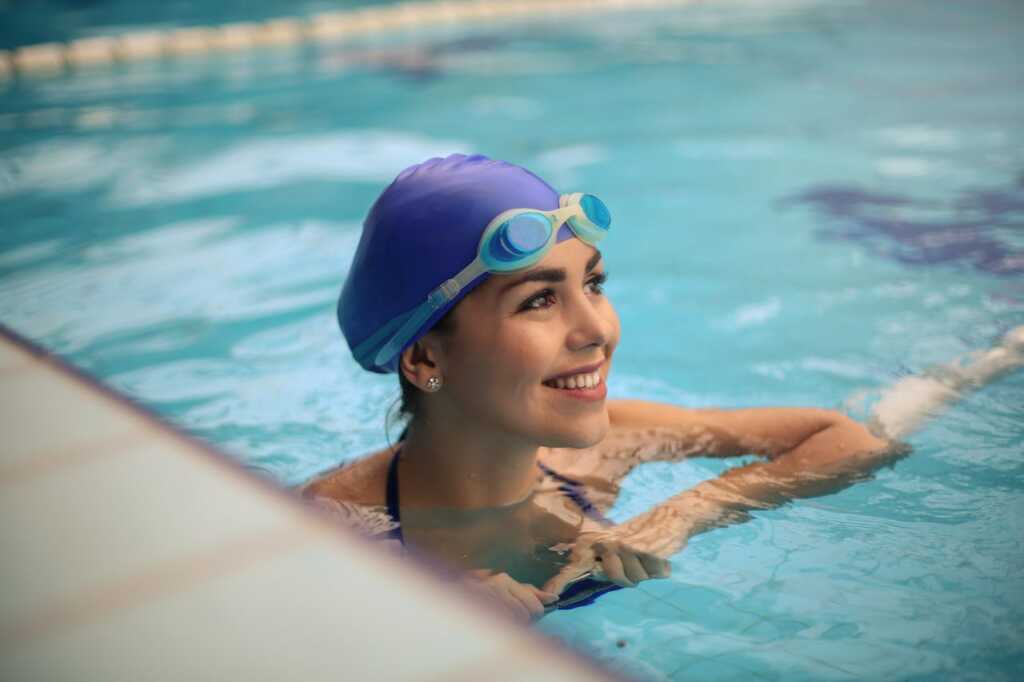Swimming is more than just a fun summer activity or a way to beat the heat. It’s a low-impact exercise that offers numerous benefits for people of all ages and fitness levels. From improving cardiovascular health to increasing muscle strength, swimming provides a holistic approach to physical fitness. And with it being such an accessible activity, anyone can reap its rewards regardless of their age or ability. Let’s dive deep into the amazing benefits of swimming and how it can positively impact your mind, body, and overall well-being.

Enhanced Cardiovascular Fitness
If you’re looking for a low-impact workout that can improve your cardiovascular fitness, then you may want to consider hitting the pool. Kids and families who want to learn this sport can take advantage of classes for swimming as much as adults who are looking to stay active. After all, swimming has been shown to increase heart rate and blood flow, resulting in improved cardiovascular health over time.
As you swim, your body has to work harder to move against the water resistance to build strength and endurance in your heart and lungs. Since swimming is low-impact, it’s easier on your joints than other forms of exercise, making it a great option for people with arthritis or other conditions that limit their mobility.
Total Body Workout
Swimming is a full-body workout that engages nearly all of your major muscle groups. You’re using your arms to pull and your legs to kick while keeping your core engaged to maintain balance and stability in the water. This combination of movements builds muscle strength and improves flexibility and coordination.
Because the resistance of the water is higher than that of air, you’ll also burn more calories while swimming than you would during other forms of exercise. Not to mention the added challenge of staying afloat and moving against the water’s current, making swimming an excellent option for those looking to lose weight or maintain a healthy body mass index.
Improved Flexibility and Balance
In the water’s buoyant embrace, swimmers experience a unique environment that allows joints and muscles to stretch in ways not possible on land. This aquatic setting gently supports the body, reducing the risk of injury and allowing for a greater range of motion. Regular swim sessions contribute to enhanced flexibility, particularly in the hips, legs, back, and shoulders.
For elderly individuals or those in physical rehabilitation, swimming can be especially beneficial, facilitating movement and balance improvements that are critical for daily activities and reducing the risk of falls. Regardless of your age, the flexibility and balance gained from this aquatic exercise can have profound effects on overall physical performance and quality of life.
Stress Reduction
Above all, swimming is a form of relaxation and meditation that melts away stress. As you move through the water, the rhythmic nature of the strokes can calm the mind and ease tension in the body. The repetitive motion of swimming is a soothing experience that brings a sense of calm to the mind. With each stroke, you can focus on your breath, taking long and deep inhales of fresh air.
The peacefulness of the water coupled with the meditative state of mind created by swimming can reduce stress, improve overall well-being, and promote relaxation. Besides, the endorphins released by exercise can also boost your mood and alleviate symptoms of depression and anxiety.
Weight Management
As mentioned earlier, swimming can be an excellent addition for those who want to maintain a healthy body weight. It’s an activity that can burn calories, build lean muscle mass, and improve overall physical fitness. And since it’s low-impact, people of all ages and fitness levels can participate without putting excessive strain on their bodies.
Perhaps most importantly, swimming is a sustainable exercise that can be incorporated into daily routines, making it easier to maintain weight loss and achieve long-term fitness goals. Whether you’re trying to shed a few pounds or maintain a healthy weight, swimming proves to be a highly effective and enjoyable option.
Improved Lung Capacity and Asthma Management
As a cardiovascular exercise, swimming can also improve lung capacity and reduce the risk of respiratory ailments. The controlled breathing techniques used while swimming aim to strengthen the muscles that support proper breathing, which is an excellent activity for people with asthma or other respiratory conditions.
Furthermore, the humidity level in indoor pools moisturizes the airways so that swimmers can breathe more easily, especially compared to exercising in dry air. With the warm water helping to relax and open up the airways, swimming can be a beneficial activity for anyone looking to improve their respiratory health.

Swimming is a versatile and accessible exercise that offers countless benefits for people of all ages. Whether you’re looking to improve your cardiovascular health, build muscle strength, manage weight, or simply relax and reduce stress, swimming has something to offer for everyone. The next time you hit the pool, remember that you’re not just having fun – you’re also investing in your physical and mental well-being.





